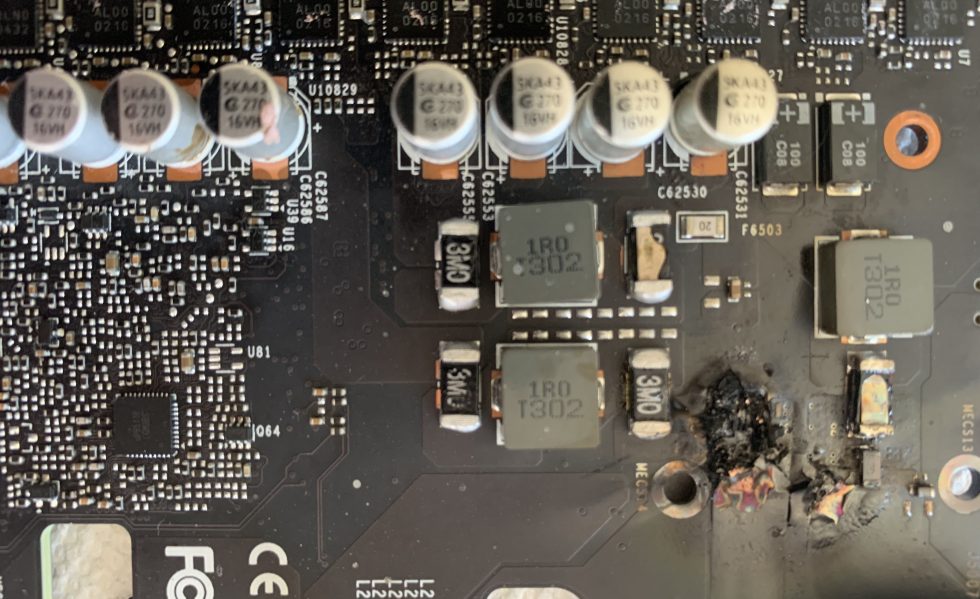Low-Power Game Blows High-Powered Graphics Cards
A new game that’s still in beta–Amazon’s “New World”–is already destroying high-end graphics cards as revealed in Part 2 of an Igor’s Lab independent investigation. Being technically astute, the best hypothesis its editors have developed is that rapid power spikes of less than 1ms are destroying the voltage regulating circuitry by cycling faster than the monitoring circuitry can respond.

While graphics card brand EVGA initially accepted blame for a fan regulation fault in its own RTX 3090, a secondary source found problems across a wide range of cards, including Radeon RX590, 6900X and 6800XT, as well as Nvidia RTX 3090 and 3080Ti. The fact that these cards go not only across multiple brands but also multiple GPU technologies lends further credence to the Igor’s Lab theory: The power limiters of all cards require some time to respond, and the necessary response is difficult if the load spike is gone before it’s read.
It might seem difficult to believe that such a problem hadn’t manifest itself earlier since many older titles also get pushed well beyond 1000 FPS on top cards, but those titles evidently don’t pull nearly as much power to render a single frame. As we can’t rely upon game developers to always detect such issues before releasing these games to thousands of eager beta testers, it will be interesting to see if GPU manufacturers can improvise a firmware solution to limiting power over time across such brief load spikes.
Looking toward the future, Igor’s Lab suggests that there should be a universal reporting system for such incidents that doesn’t lay all of the effort upon a single seller (like EVGA) or a single tester (like Igor). While the site suggests nVidia itself take up the cause, that would probably not serve competitor AMD sufficiently. We’d like to suggest Igor or one of his friendly sites set up such a reporting system independently, as such a system would surely get enough traffic to justify the cost of a relational database if only it contained a single ad pointing back to the host site.
